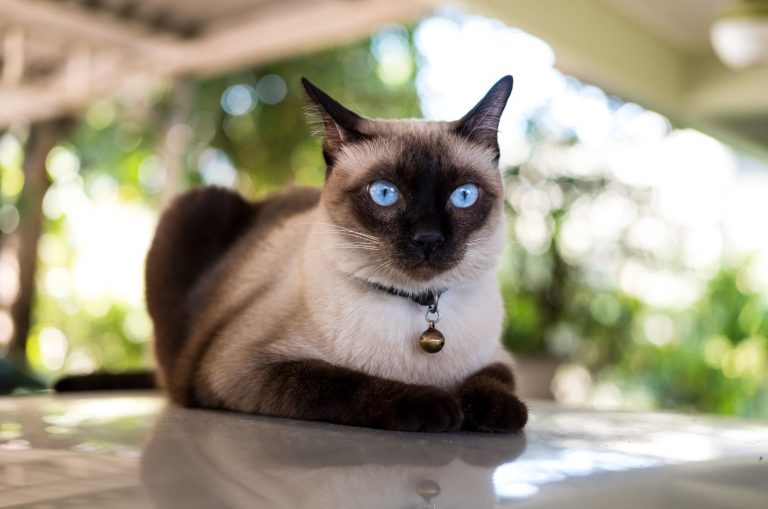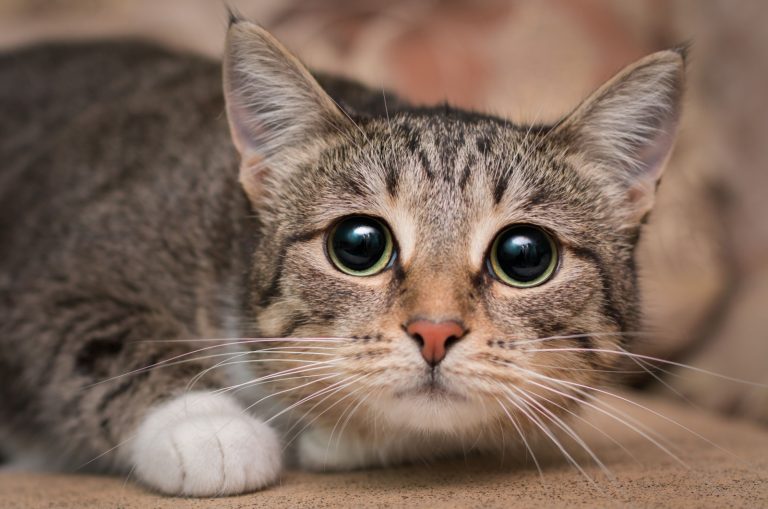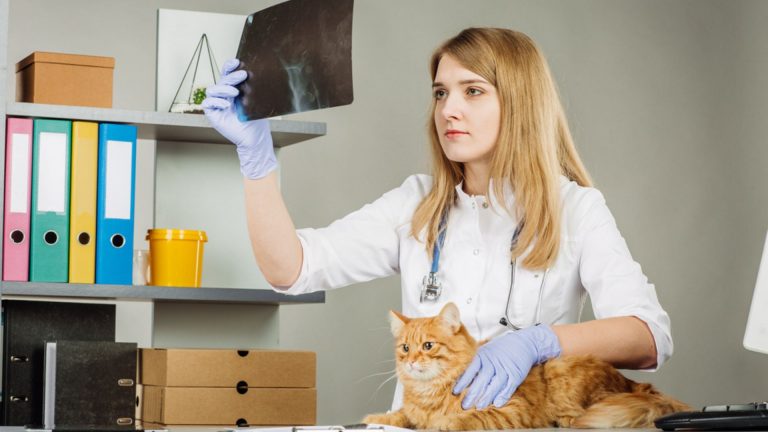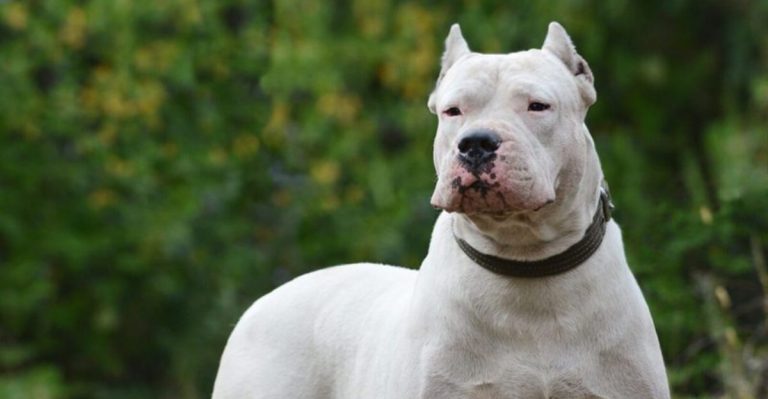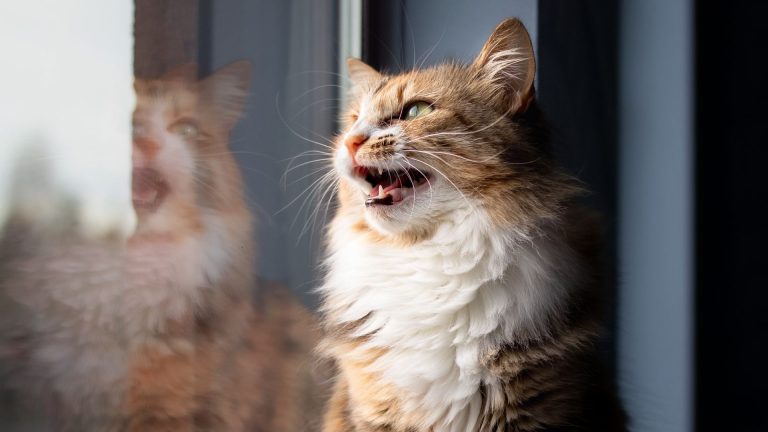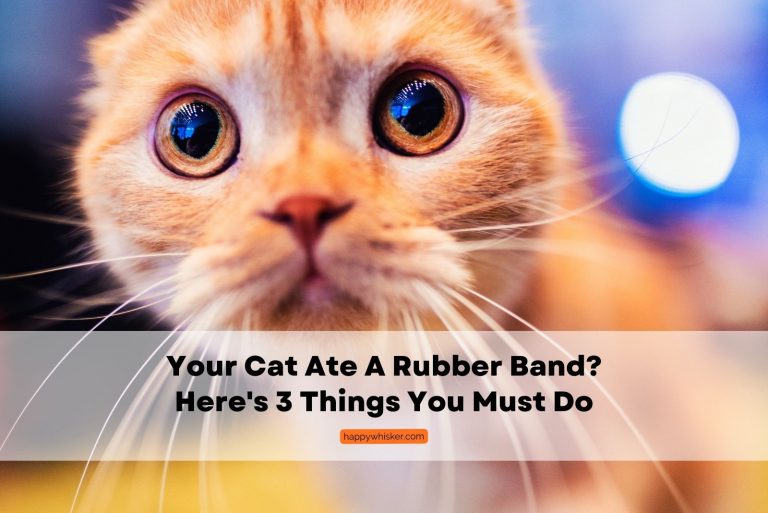How Long Does It Take A Cat To Digest Food? All You Need To Know
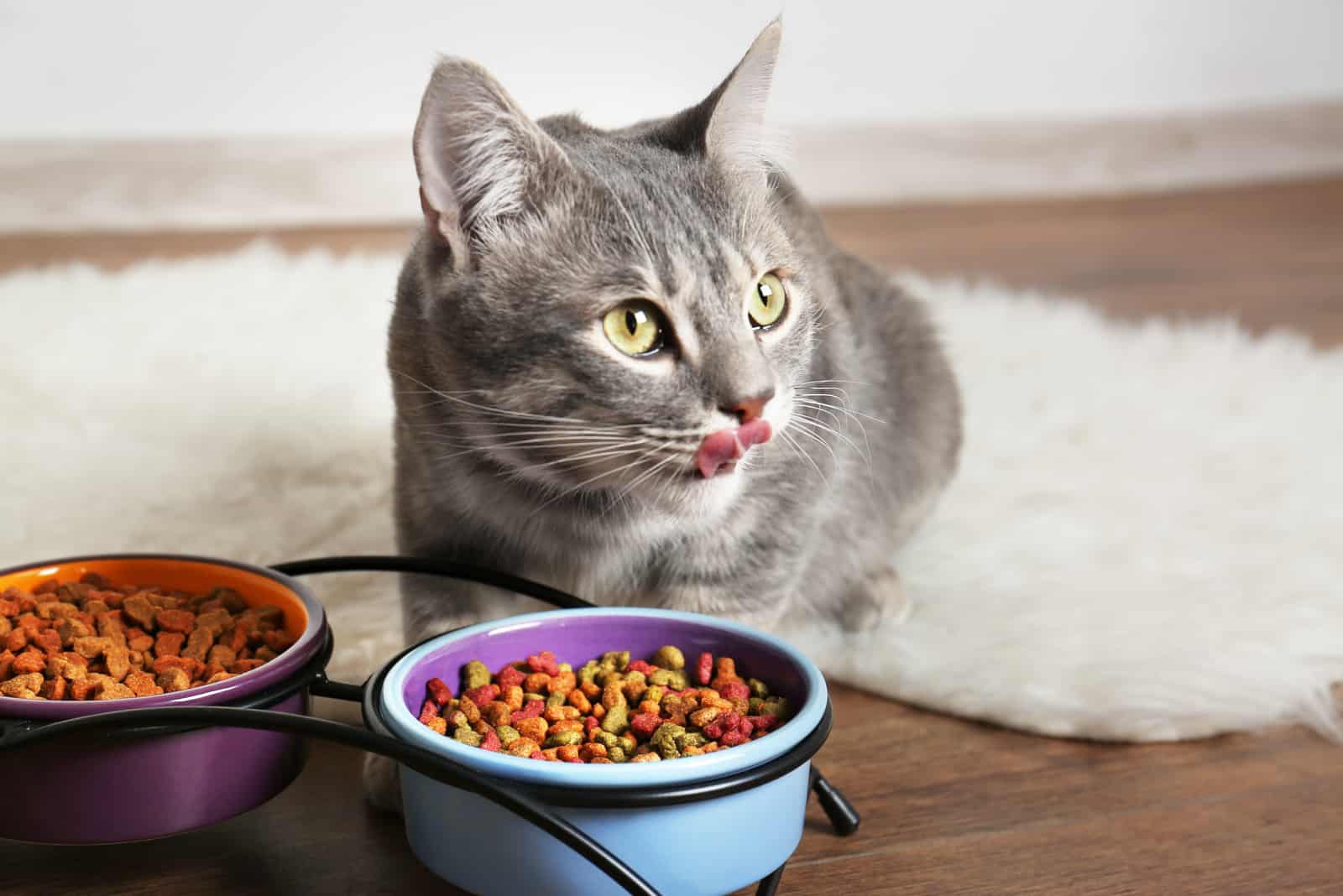
If you’re a new pet owner, you are probably racking your brains on how to establish your cat’s feeding routine. You don’t want your cat to starve, but you also don’t want it to overeat.
Perhaps your cat has not had a bowel movement today, and you’re worried. You don’t want your cat to develop digestive issues, but you’re afraid that you’re doing the wrong thing by feeding them only twice a day. The best thing you can do is to learn about the digestive process of cats.
This article will give you insight into when and what your cat should be fed, and how to prevent your cat from developing digestive problems.
So, If you’re wondering How long does it take a cat to digest food? stay tuned to learn about the cat’s digestive system and what you can do to make sure it works properly.
How Long Does It Take A Cat To Digest Food?
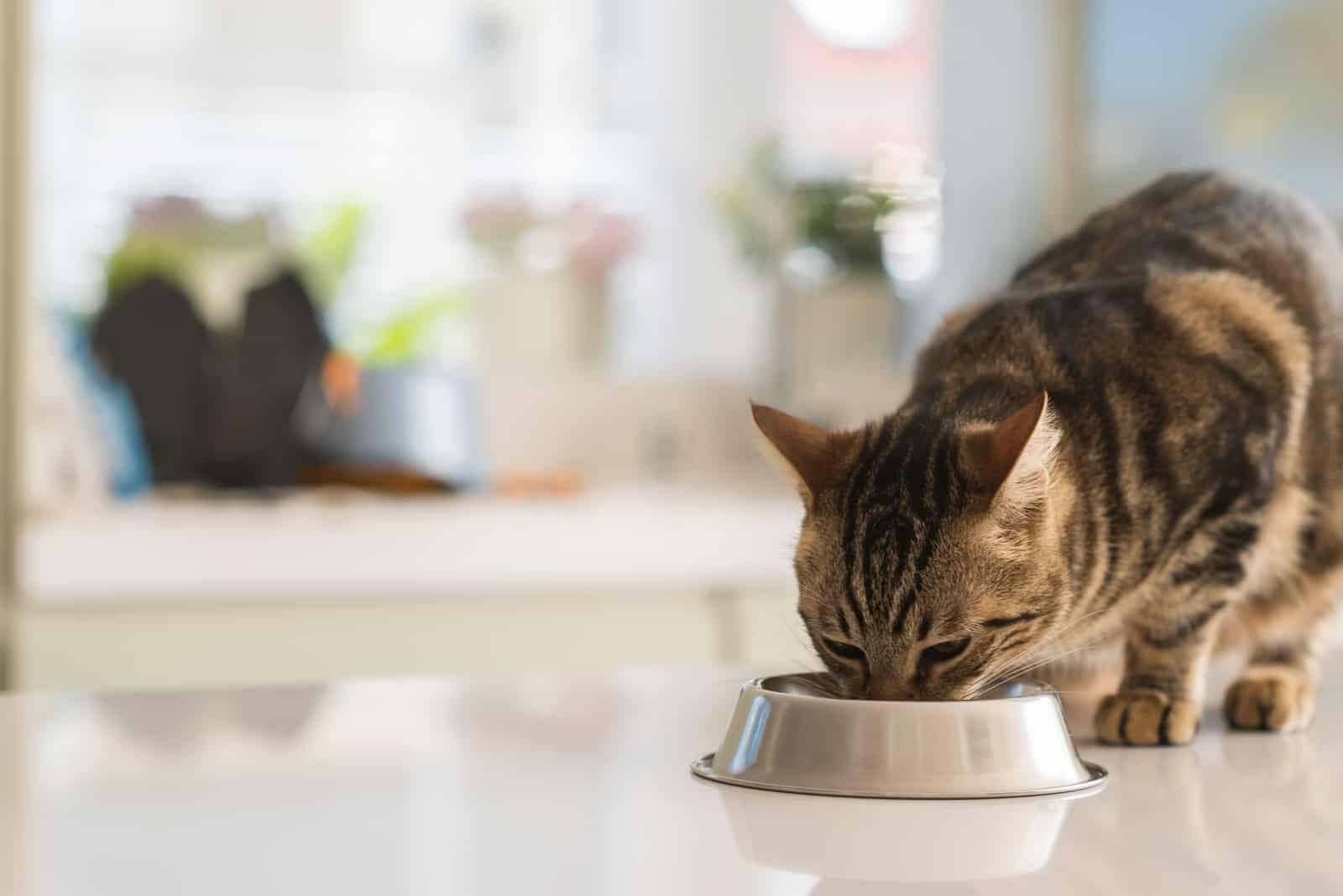
Generally, it takes up to 10-20 hours for a cat’s digestion to be complete. This is the time it takes for the full digestive process to be complete.
This means that the time it takes food to travel from the esophagus to rectum, exiting as cat poop, will take between 10 to 20 hours.
You may think this indicates your cat’s diet can consist of only one daily meal.
However, a cat’s stomach will do its job in around 8-10 hours. The food then starts moving to the small intestine, large intestine, pancreas, and the rest of the digestive tract.
The stomach being empty, your cat will get hungry and desire new food, which is why you have to feed your cat more than once a day.
How Often Should I Feed My Cat?
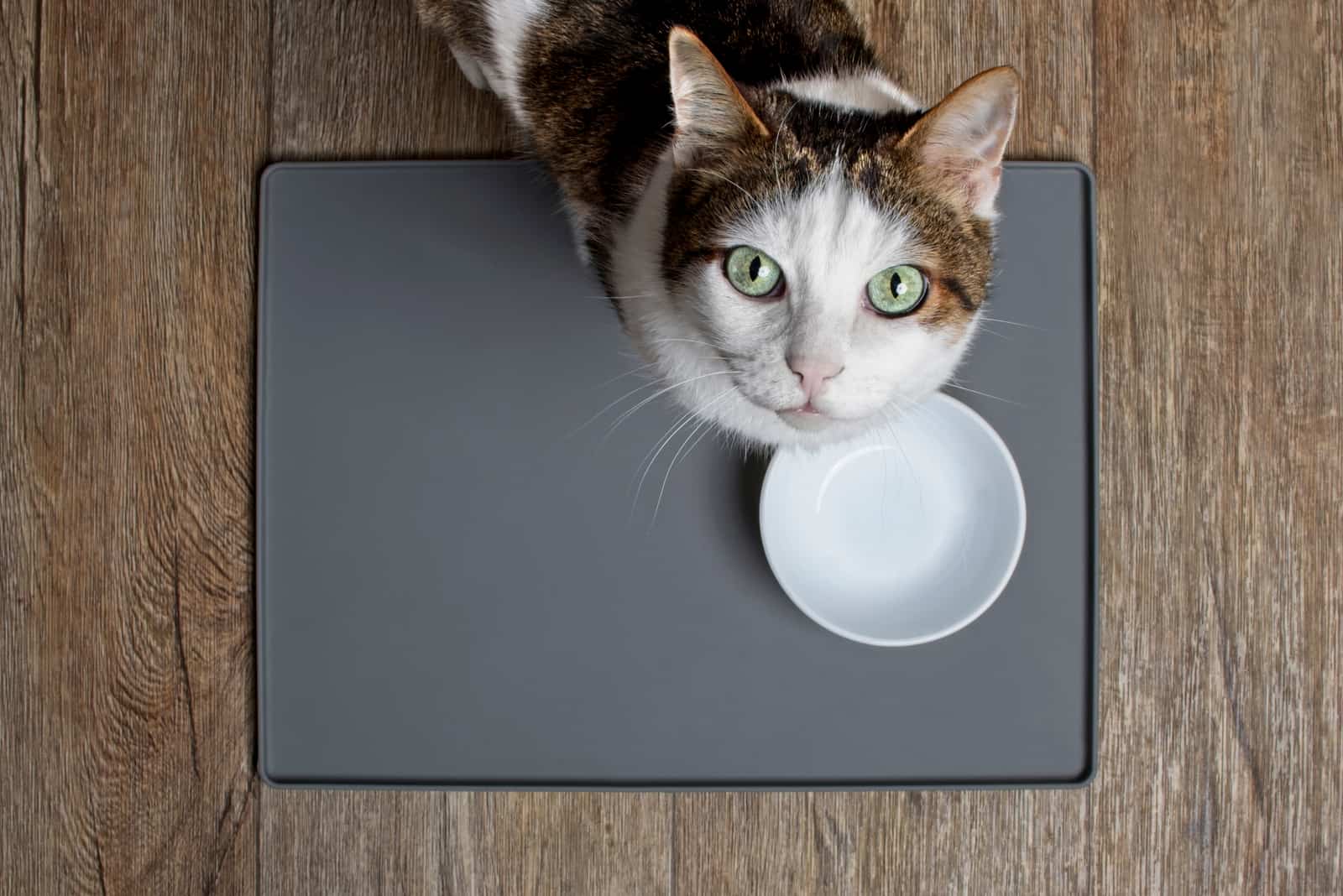
Most vets agree that a strict schedule of two meals a day is best for your cat, to avoid digestive issues.
Kittens may need a more frequent feeding schedule, as opposed to adult cats. Consult your vet to make sure that you’re doing what’s right for your cat’s health.
Cats are habitual creatures. If you are a cat owner, you know that deviations from schedule can often be stressful for your cat.
Having a strict feeding schedule can help remedy a stressful situation, since the habitual behavior will tell your cat that everything is OK.
However, some say that there are three approaches to feeding your cat:
1. Controlled feeding
This method consists of setting up a feeding schedule for your cat. Cat owners will provide cat food for their pet at certain times of the day, usually once in the morning, and once in the evening.
This method will help you keep track of your cat’s food consumption, enabling you to notice and prevent any digestive issues that may occur. However, this method might leave your cat hungry during the daytime, asking for more cat food.
2. Non-controlled feeding
Using this method means that your cat’s food bowl will always be filled with food. This means your cat will be able to feed whenever it feels the need to.
This method will not allow you to monitor your cat’s food intake, which can result in overeating and development of digestive disorders and diabetes.
Additionally, in a multiple-cat household, it’ll be hard to know which cat is overeating and which is undereating.
3. Combined
This approach combines a strict schedule with free feeding. This method suggests feeding your pet wet cat food twice a day on schedule, and giving them dry food (kibbles) during the day, if they feel hungry.
This is a good method for being certain your cat is fed, but the disadvantages are the same as with non-controlled feeding. You won’t be able to monitor your cat’s eating as easily, which can cause health issues.
Signs Of Digestive Problems
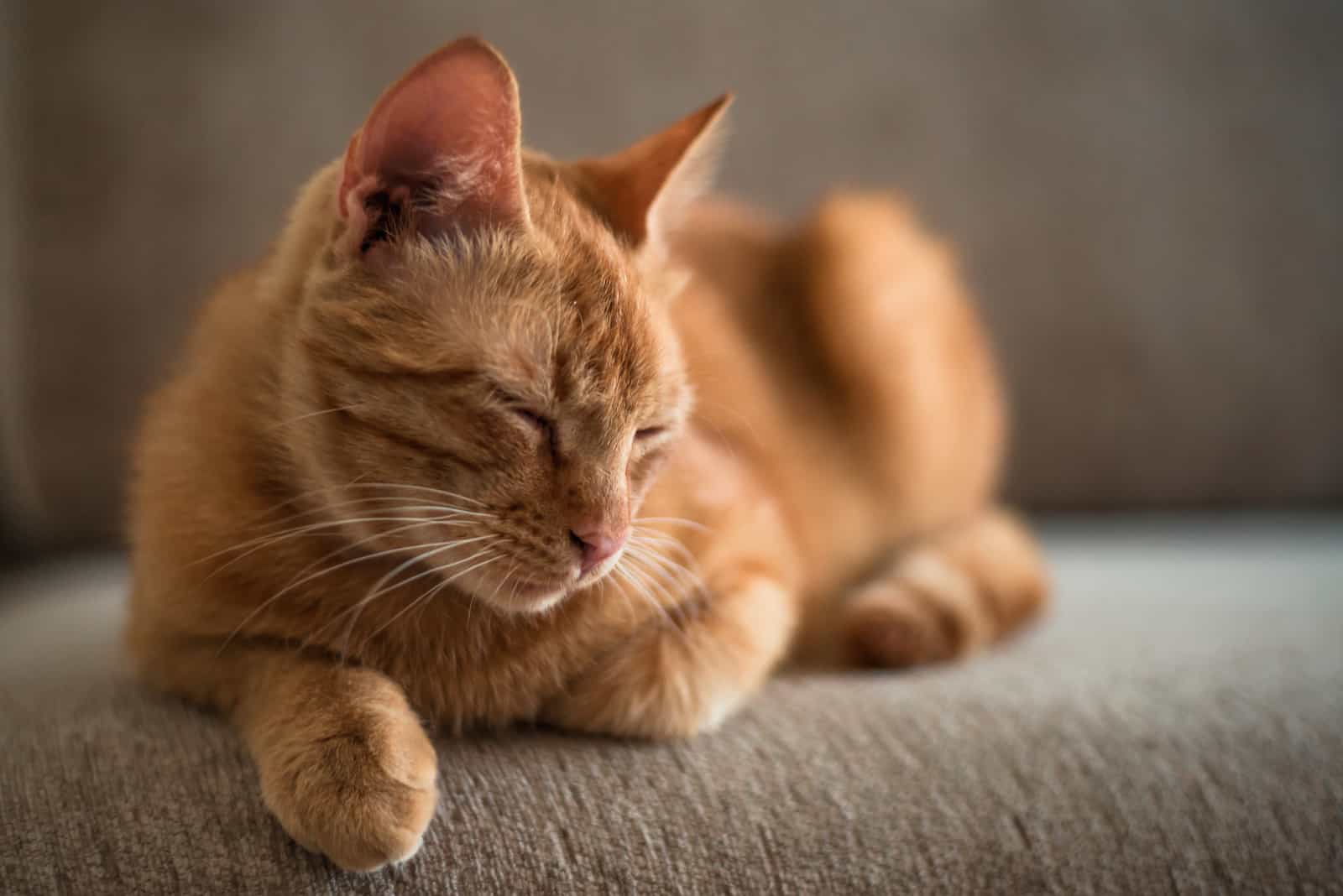
You fed your cat yesterday and yet it still hasn’t used the litter box? You’ve noticed some bloating? These may be signs that your cat may be suffering from digestive issues.
This is a more important matter than the question How long does it take a cat to digest food, right?
Cats have sensitive stomachs, and if your cat hasn’t pooped for over 36 hours, it may have gastrointestinal problems, like constipation or pancreatitis.
These digestive issues can have many different causes. Eating only dry food, not enough dietary fiber, kidney problems, hairballs, food allergies, colon problems, and soft feces, are just some of the possible causes for digestive issues.
Possible symptoms of digestive problems include:
• Lack of energy
• Lack of appetite (weight loss)
• Vomiting (possibly accompanied by diarrhea)
• Aggression toward the owner and/or other pets
If your cat displays any of the symptoms above, and it hasn’t had a bowel movement in 36 hours, take it to the vet immediately. It may be having digestive issues, like gastroenteritis, constipation, or pancreatitis.
Must Read: How Long Can A Cat Go Without Using The Bathroom? Explained
Signs Of Intestinal Blockage
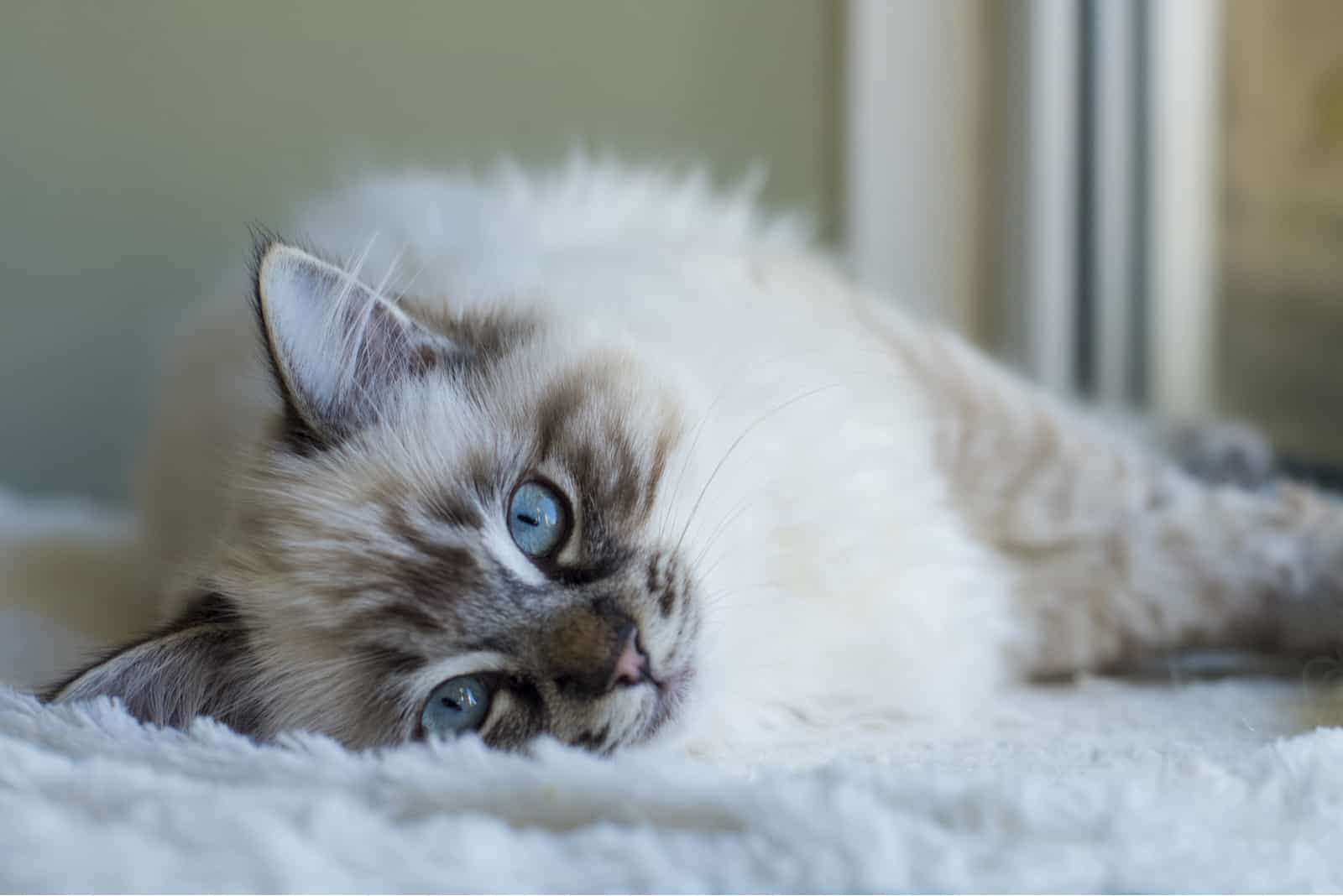
Intestinal blockage can occur if your cat consumes something that cannot be digested. More often than not, this will be a foreign object, like a ball, toy, or any kind of small plastic.
The foreign object will proceed to cause blockage in a cat’s digestive system, which can cause many unwanted effects:
• Diarrhea
• Vomiting
• Dehydration
• No appetite
• Losing weight
Intestinal blockage is an emergency, and you should take your cat to the vet immediately if you notice any of these symptoms.
However, intestinal blockage does not have to be caused by a foreign object. Intestinal parasites and tumors can also cause intestinal blockage.
Take your cat to the vet; it probably needs an operation to take care of the blockage.
Improving Your Cat’s Digestive System
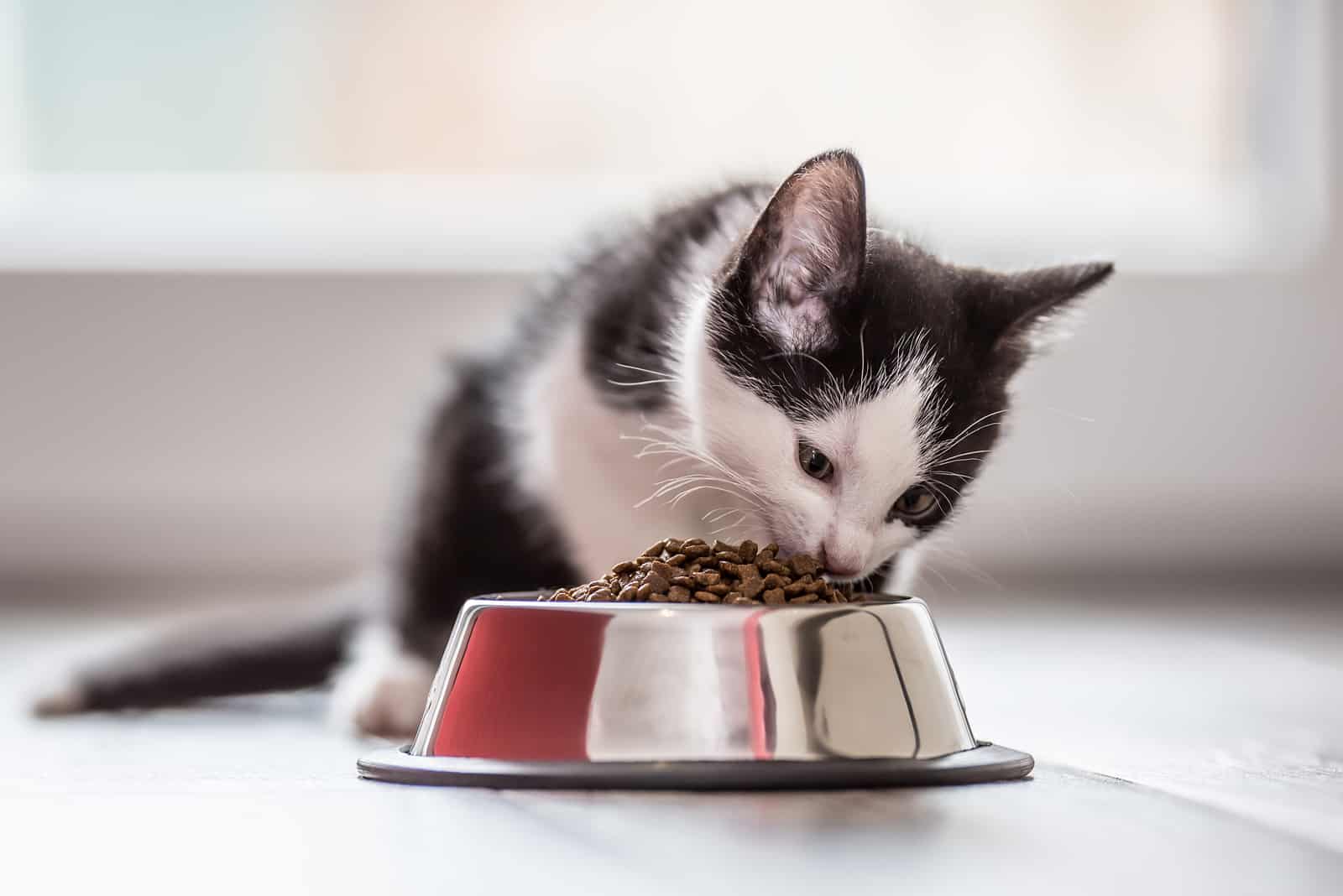
As a cat owner, one of the most crucial things is to understand how to keep your cat’s digestive system healthy.
First of all, you have to understand that cats are obligate carnivores, which means that their diet must solely be based on meat. Some owners want pets to follow their own diet plans, which is a mistake.
Keeping your cat’s digestive system in order will make both of your lives easier, and here are some ways to do it:
• Feed your cat only the best cat food. Make sure your cat eats a healthy amount of both dry and wet cat food. Both of these are important for your cat’s digestion, since they have different nutrients and properties. Do not exclude either type!
• Regularly add probiotics and other digestion-aiding medicine to your cat’s diet. Supplements should be readily available in your local pet shop. If your cat does not want to take the medicine directly, mix it with some kibble.
• Never change your cat’s food abruptly. If you are thinking about changing your cat’s diet, or you’re doing it on your vet’s suggestion, don’t do it instantly. It will be a shock to your cat’s digestive system, so we recommend you do it gradually.
• Make sure you are monitoring your cat’s health and diet. You should visit the vet regularly, to prevent possible diseases and make sure your cat is in prime shape.
Types Of Food To Avoid Giving Your Cat
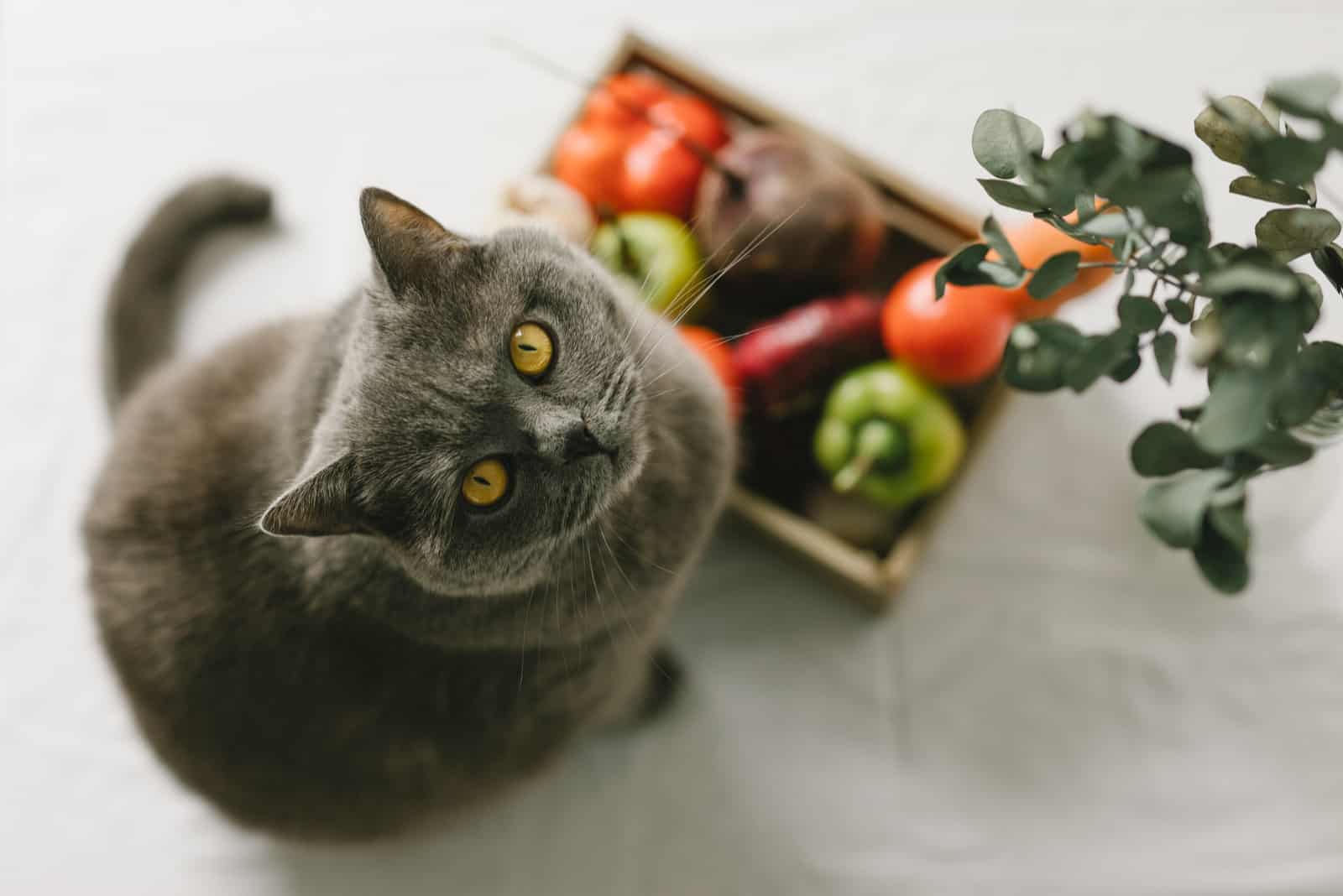
We mentioned earlier that cats are obligate carnivores. This means that the majority of their diet is focused around consuming meat.
Being prolific hunters, cats have evolved to rely on their prey for all necessary nutrients.
Scientists explain that cats usually require a diet of 45% fat and 55% protein. If you have a cat, a carnivore high-protein is the way to go.
The following are types of food you should avoid feeding to your cat.
1. Vegetables
Unlike many other animals, a cat’s digestive system does not contain the enzymes required to digest plants.
This means that cats cannot get the necessary nutrients by consuming vegetables. Consumed vegetables will pass through the digestive system without being broken down into nutrients.
If you want to incorporate vegetables in your cat’s diet, keep the quantities very small! You will do no favors to your pet.
2. Dairy products
No one knows how it came about, but there is a myth that cats love milk. We’re here to tell you it may not be true.
Of course, young kittens require milk to grow up strong, but rarely will an adult cat consume milk. After finishing the suckling phase of their life, a cat’s digestive system no longer requires milk.
The same goes for other dairy products, especially heavy cheeses. You may enjoy dairy products and assume your cat will too. Don’t get me wrong, your cat might take several sips of milk, but it does not mean it’s healthy.
The danger of your cat getting constipated increases exponentially if your cat consumes great amounts of milk. Keep your cat away from dairy products to make sure it stays healthy.
Suggested Read: Are Cats Lactose Intolerant? Do They Need Dairy Products?
3. Human food
This should be a no brainer, but cats aren’t able to digest most of the foods that people can.
This means that, more often than not, you shouldn’t feed your cat lunch leftovers. If you have some leftover bones, or pieces of meat, feel free to treat your pet.
However, if the leftover food is not meat, it’s best you don’t share it with your cat.
This extends to all other types of food. For example, never try to give your cat alcohol, chocolate, or similar items you might enjoy consuming. These can cause severe problems with your cat’s digestion.
Additionally, offering your cat grain foods may be risky. While cats can digest some grain foods, it is important to note that they don’t need it.
Cats can survive perfectly well by only consuming meat, so we recommend you don’t try your luck by giving them anything else.
See Also: Do Cats Eat Lamb Meat? Yummy Cat Menu
Final Thoughts
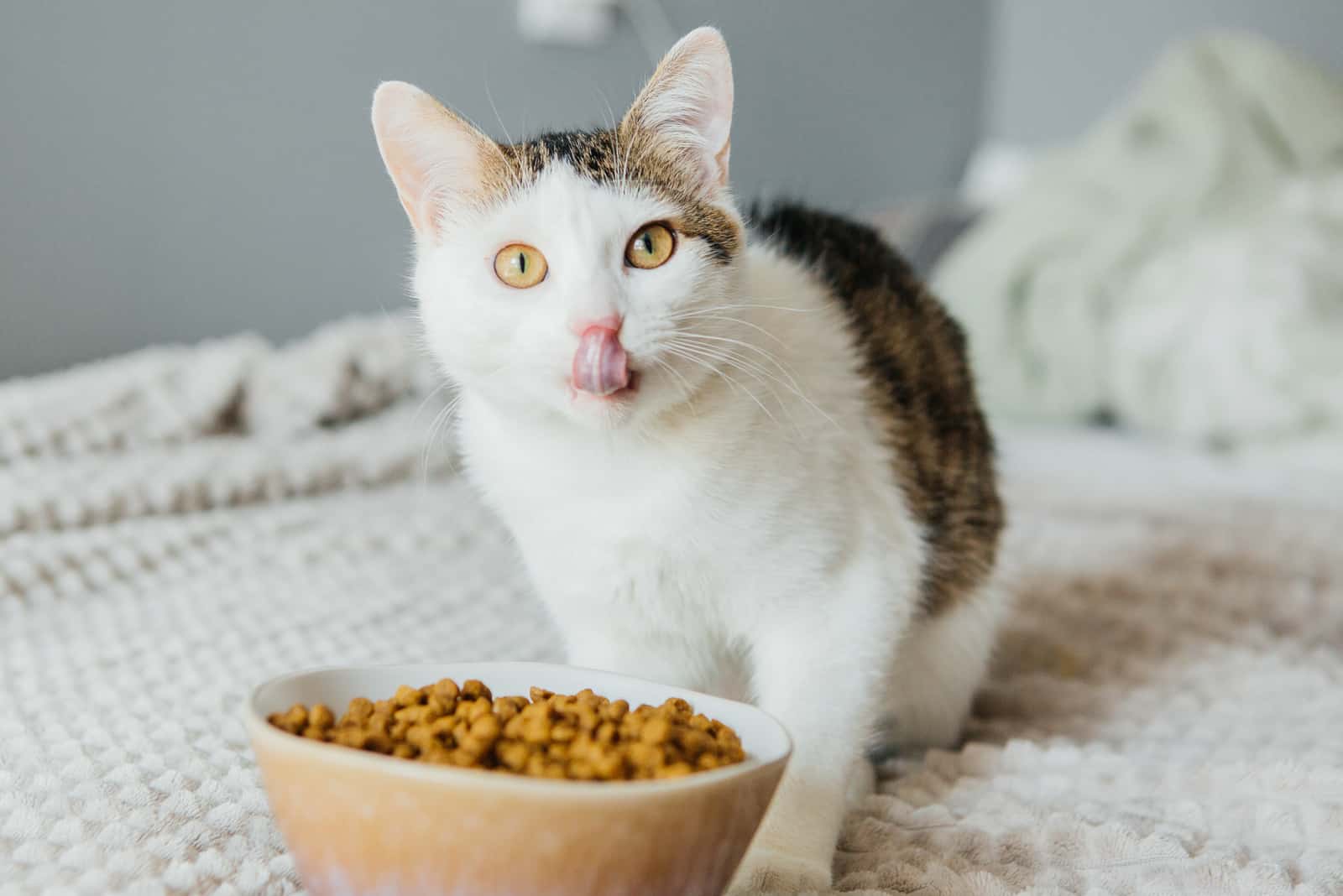
All in all, cats have sensitive stomachs and you have to make sure you’re feeding them right. Try to feed only meat to your cat, since they are obligate carnivores.
If you’re wondering “how long does it take a cat to digest food” you need to know that the usual digestion process lasts about 10-20 hours. Your cat will get hungry in the meantime, so make sure you feed them twice a day.
Keep the diet carnivorous, give your cat food supplements, and take your cat to the vet regularly. Follow these steps and you’ll most likely prevent any digestive problems that could occur.

